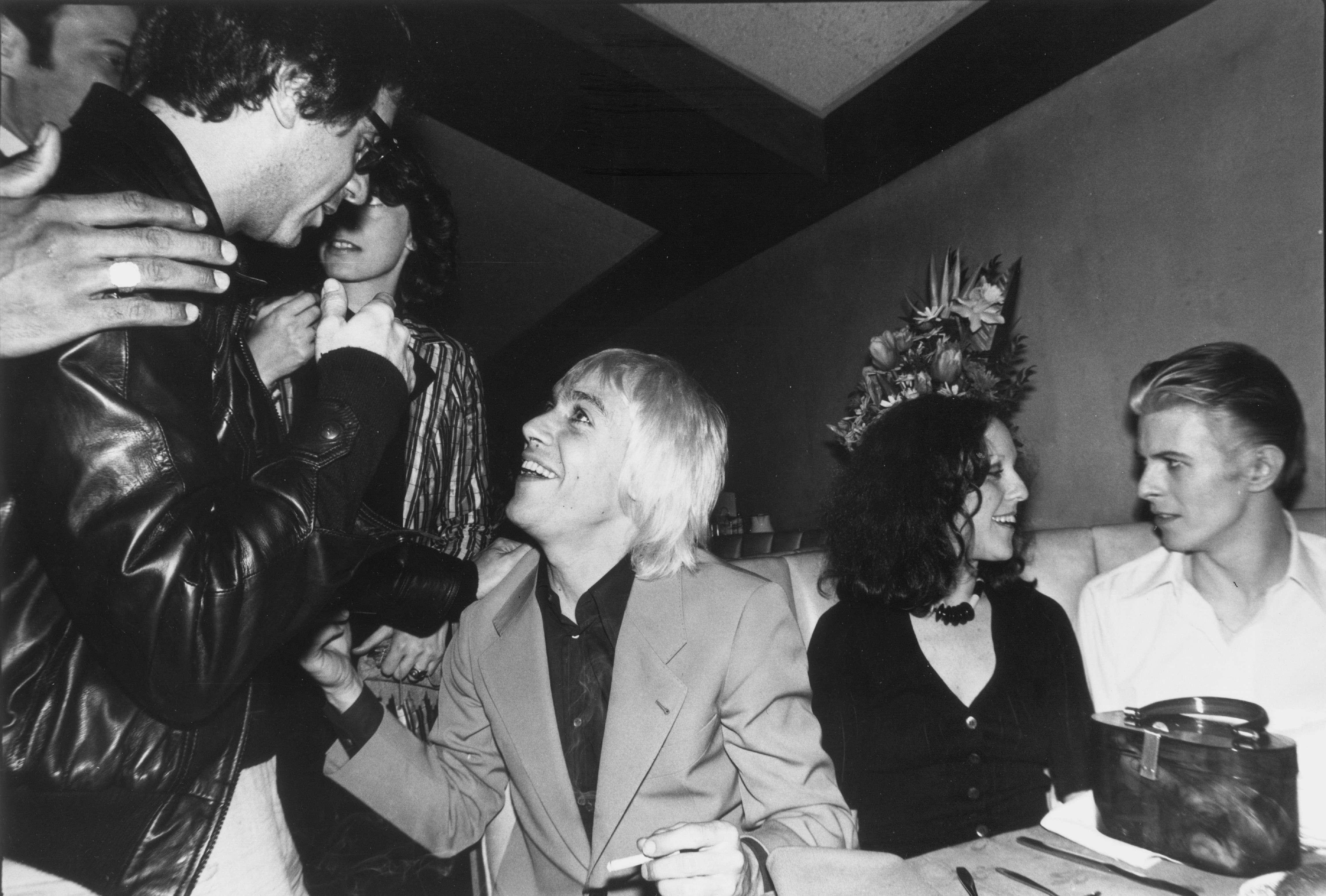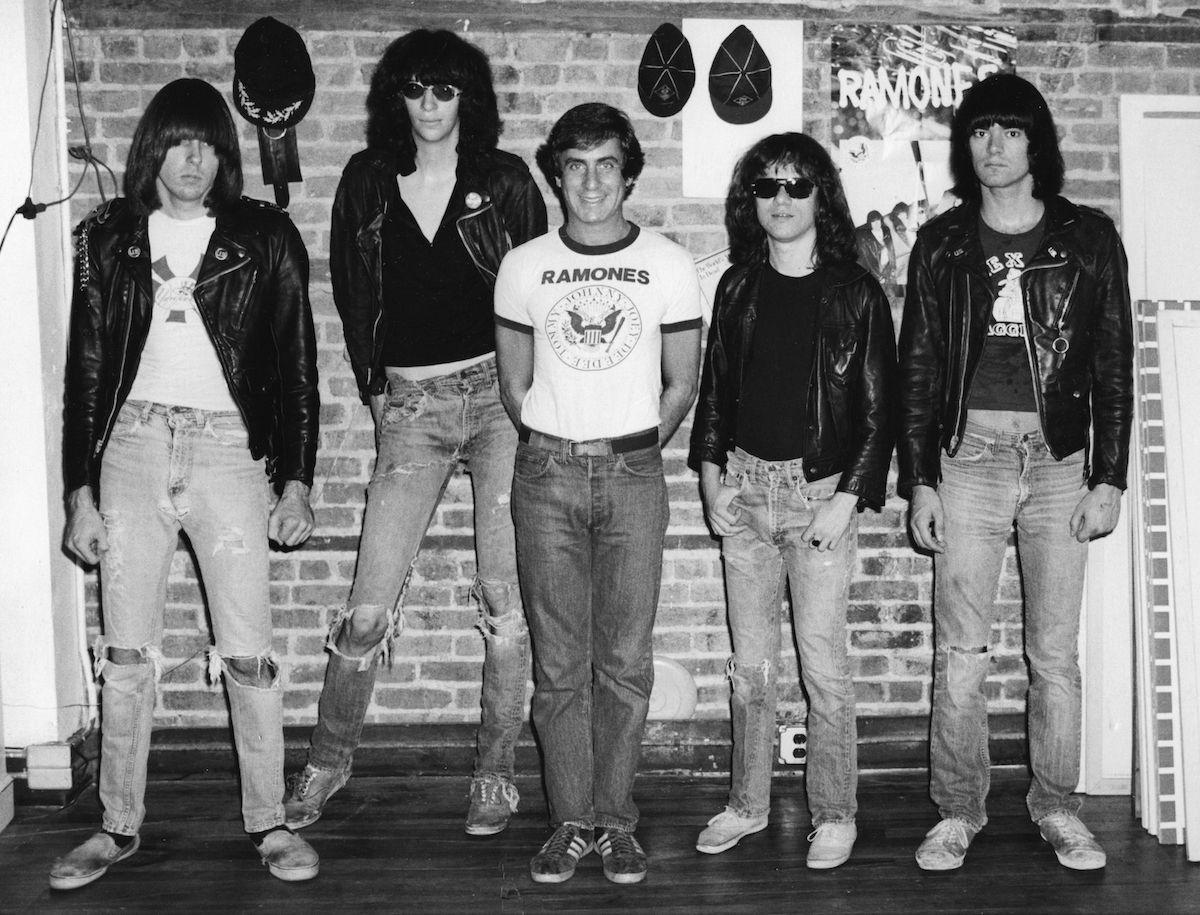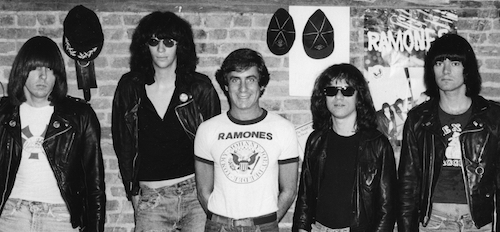
In a way, Danny Fields is like the Zelig of underground rock – there at the critical moments in the music’s history. Except that unlike Zelig, who just popped up in the pictures, he played key roles in the careers of such influential acts as the Doors, Velvet Underground, MC5, Stooges and Ramones, to name just some of the ways that Fields was a key player in both rock music and popular culture over the last half-century or so.
It all makes for a dizzying cinematic ride in Danny Says, the documentary film about Fields’ rather amazing life story, released on DVD in 2017.
As someone who has known Fields socially since the mid 1970s, and was aware of his musical associations (England’s Guardian tags him as “a blue-chip trendspotter”), this writer was still astounded at all I learned about his cutting-edge accomplishments from the movie. How the Brooklyn native attended and graduated from the University of Pennsylvania while still in his teens (and did a year at Harvard Law School before dropping out); that he was at the vanguard of living as an unashamedly out gay man in the early 1960s; how he inadvertently sparked the furor over John Lennon’s comment about the Beatles being more popular than Jesus when he put it on the cover of Datebook a teen magazine he edited; that he stoked the Bay City Rollers phenomenon by featuring them on the cover of 16 magazine for more than a year.
All that is in addition to helping raise the Doors to fame as a publicist at Elektra Records, signing both the MC5 and Iggy and the Stooges to that label, and spotting the Ramones at an early CBGB gig and immediately offering to manage them. They later enshrined him in the rock musical pantheon with their song “Danny Says.”
For Fields, born November 13, 1939, the experience of being a documentary subject has him almost speechless. “I don’t know how to feel,” he says. “Like, me? Any of the people I’ve been with, they’re worthy. They’re famous.
“My emotion was my enormous, incredible respect for the awesomeness of what [director] Brendan [Toller] did, putting pieces of my story into a movie. Another emotion I felt was those are all people in my life. Boy, am I lucky.”
If you judge a man by the company he keeps, Fields is beloved by many. Such diverse musical figures as Alice Cooper, Iggy Pop and folk singer Judy Collins offer testimony about him in the film, as do a few score other notables from the music business and leading-edge pop culture scene.
Part of what makes Danny Says such a rich cornucopia of musical and cultural history is his own vast personal archives, which even includes recorded phone calls, something Fields picked up from Andy Warhol – who tried to document everything he could – during his time as part of the artist’s Factory crowd. “It was so easy,” he says. “You got a suction cup with a phono plug and stuck it on the handset. You’d be on the phone with someone and go, wait a minute, my battery is running down.”
Fields took a strict hands-off policy during the making of the movie. “First I heard about it, because [Toler] was showing it to all my friends and I was refusing to see it. They would say to me, oh, it’s very good. If they’d said, ehhhh, I would have jumped out the window,” he confesses.
For all that he has accomplished and been associated with, Fields says he is most proud of one artifact of his own creativity. “What’s the thing I couldn’t do when I was with a band? I couldn’t play, I couldn’t sing, I couldn’t tell them how to stand. I had no creative input ever with anyone,” he notes. “I never told them what to play, what to wear. If they didn’t have all that down I would never have embraced them. They knew what to do – savoir faire.”
But his talents have been showcased in a coffee table book of the photos he took of the Ramones over his years of working with the band – My Ramones.

Fields also takes pride in “Doing right by some creative people I loved. Crafting relationships to their benefit because of being a big fan to start with. About being a groupie. It’s all the groupies to begin with. When you can put things together, it’s cool, and people are happy… until they start hating each other,” he chuckles.
He also notes how “I helped some great songs get out into the world.”
Fields likens the experience of being a documentary subject to “Thank you for this wristwatch for 50 years or golden service,” he quips. “But what a way to be thanked.”
With his life now documented to live forever in film, does Fields know what he’d like his epitaph to say? “‘He Had Cool Friends.’ Because that’s the thing I never had when I was little.”
Related: The Ramones have a NYC street named for them
- Bob Dylan: Still the Colossus - 05/23/2024
- 10 Great Road Trip Rock Albums - 05/22/2024
- B.B. King May Be Gone But the Thrill Remains - 05/14/2024

